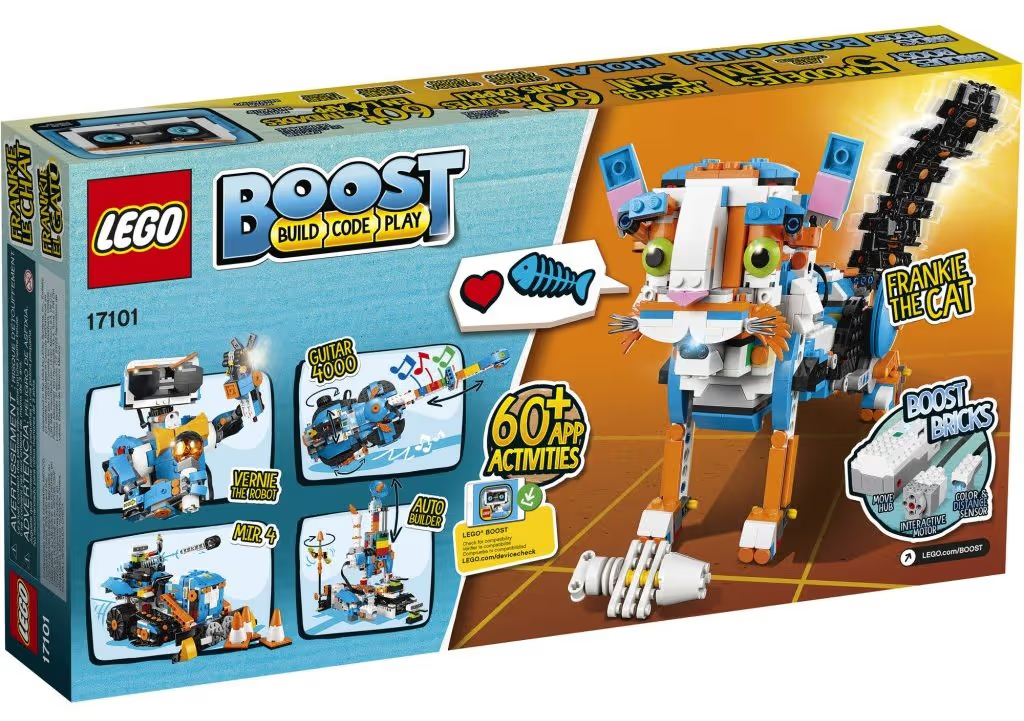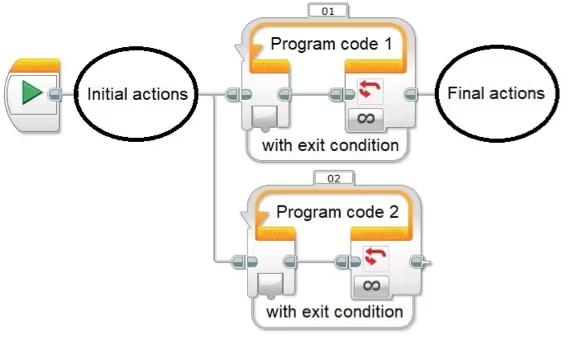
LEGO® BOOST was released in 2017, joining MINDSTORMS and WeDo in the LEGO robotics line-up. Unlike those two products, BOOST was designed solely for the retail market. BOOST has received rave reviews and a number of awards.
Even though it is not designed for educational settings, does BOOST have anything to offer educators? The answer is a qualified yes.
First, the pros:
- BOOST has an easy-to-learn block-style programming environment.
- The set is brick-based, making it easier for novices to get started building than the beam-and-peg environment of MINDSTORMS.
- BOOST is geared towards an older audience than WeDo, making it more appealing for use with upper-elementary and middle-school students.
- BOOST comes with three motors, two of them built into the hub, making it more powerful than the WeDo set, which has only one motor.
- A BOOST set costs less than either a MINDSTORMS set or a WeDo set, making it attractive for those on a tight budget.
And the cons:
- The BOOST software is tablet-based; it does not work on laptops or Chromebooks.
- The building and programming activities included with the BOOST set are designed for an individual user. They are appealing but highly structured and time-consuming—well suited for a single child, but not a good fit for classroom or club use.
- The LEGO pieces come in one large box; there is no storage tray.
My verdict: Although LEGO BOOST is a great set for home use, it is not a good fit for a formal classroom. If, however, you're running a makerspaces or an afterschool club, you may find it suits your needs well.








